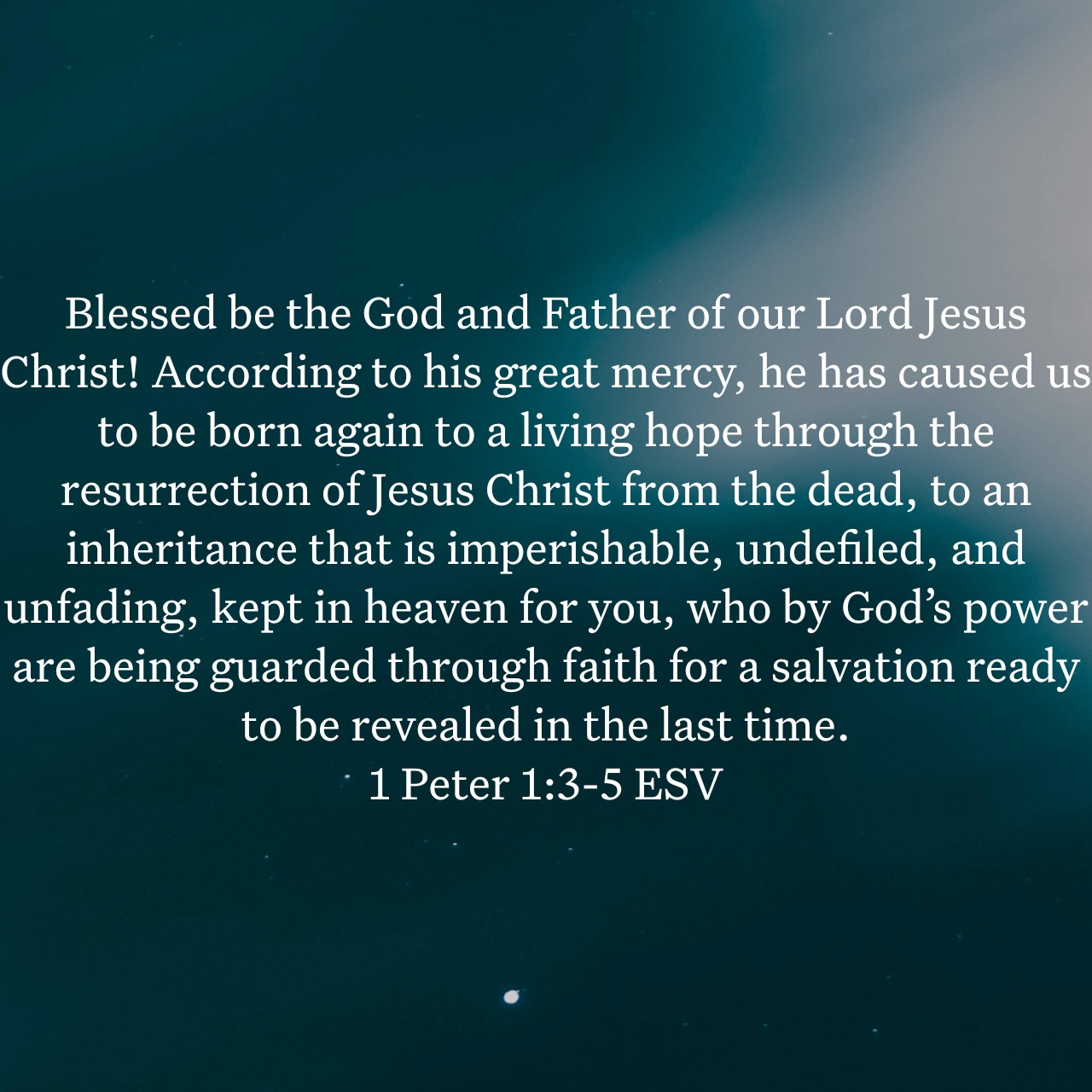Devotional 19 August 2025

Peter opens with worship, blessing the God who has mercifully given us new birth into a living hope. This hope is alive because Christ Himself lives, having been raised from the dead (1 Corinthians 15:20–22). From the moment of our salvation, we are pulled heavenward, away from the world we have died to (Galatians 2:20).
Our inheritance, Peter says, is “imperishable, undefiled, and unfading.” Earthly treasures decay (Matthew 6:19–20), but this inheritance is secure, guarded in heaven by God’s own power. The same God who raised Jesus (Romans 6:4) now keeps us until salvation is fully revealed. This is the same vision that John saw: a Kingdom already advancing, yet awaiting its consummation when “the kingdom of the world has become the kingdom of our Lord and of his Christ” (Revelation 11:15).
Hebrews agrees, reminding us that God has spoken in these last days through His Son (Hebrews 1:2) and that we are receiving “a kingdom that cannot be shaken” (Hebrews 12:28). Revelation unveils that Kingdom in glory, Hebrews proclaims its superiority and permanence, and Peter presses us to live in its reality. Later, he writes that even prophets and angels longed to see what has now been revealed to us—Christ Himself and salvation through Him (1 Peter 1:10–12).
Paul echoes this truth: we have already been transferred into Christ’s Kingdom (Colossians 1:13–14), yet we await its full revealing (Romans 8:18–21). Our citizenship is in heaven (Philippians 3:20), and by faith we endure until Christ, the main character of history, is revealed fully (Revelation 1:1).
Our hope is alive, our inheritance secure, and our salvation guarded—because Christ is risen and His Kingdom cannot fail.